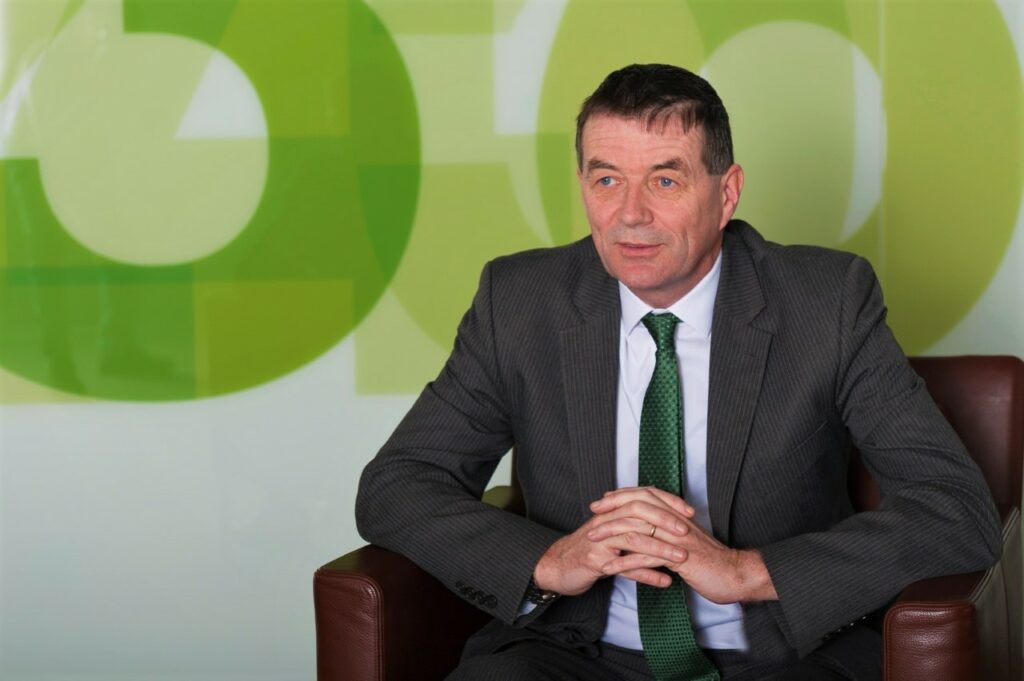The president of the European Court of Auditors (ECA), Tony Murphy, recalled in his speech on Thursday at the European Parliament’s discharge debate that given the high error rate the EU auditors had maintained an adverse opinion on EU’s budget spending for the fourth consecutive year.
As previously reported, the Parliament is worried about the growing error rate in the EU budget. This rose in 2022 to 4.2%, up from 3% in 2021 and 2.7% in 2020, prompting the MEPs to warn against underestimating the level of risk.
The cohesion policy area continues to be the main driver of the increase in the overall error rate, the ECA president said. It represents the EU budget’s largest policy area accounting for 40 % of ECA’s audited expenditure. ECA estimates the error rate in this policy area at 6.4 % (compared to 3.6 % in 2021), marking a nearly 80 % year-on-year increase.
He was especially critical against the risks to the spending under the Recovery and Resilience Facility (RRF), which focuses on the achievement of milestones and targets. “Our conclusion is that several milestones and targets were affected by regularity issues. We also found weaknesses in the RRF control system.”
A major weakness is that unlike other EU funding programmes, investment projects’ compliance with the EU and national rules is not a condition for payment under the RFF and therefore not covered by the Commission assessment.
However, these large investment projects, which only now begin to be funded through the facility, are similar in nature to Cohesion funded investments. Considering the observed significant increase in the error rate within this policy area, a risk exists that under the RRF the EU's financial interests would not be sufficiently protected (‘assurance gap’).
Worst fears come true
The EU and national rules ECA refer to primarily relate to compliance with procurement, state aid and other eligibility criteria for projects. What is concerning for ECA is that non-compliance with these rules represent the main sources of errors on which the audit institution continually reports across other EU spending programmes.
In fact, ECA worst fears have already come true. EPPO, the independent public prosecution office of the EU, reported recently about an international large-scale investigation into an alleged criminal organisation suspected of defrauding €600 million from the RRF in Italy.
POLITICO reported that authorities in Greece are investigating allegations of fraud linked to the way €2.5 billion in EU funds has been awarded to just 10 companies.
The offices of the country’s three telecommunications firms — Cosmote, Vodafone and Nova — as well as five IT companies and two consultancies were raided by investigators from the Greek competition commission last month. EPPO has also launched an investigation, it confirmed.
Investigation of political appointment
In his speech, Tony Murphy did not comment on the Parliament’s amendment concerning the controversial political appointment of an EU SME envoy. It is more likely that this issue will be investigated by the European Ombudsman.
Asked about the possibility of an inquiry, the Ombudsman Office told The Brussels Times that it has not received a complaint related to this matter. “If we do, the first step will be to analyse it in line with our usual procedure to decide whether it is admissible.” The Ombudsman can also decide on its own to initiate an inquiry.
In the past, the Ombudsman found maladministration in its investigation of the appointment of an official to the post as the European Commission’s Secretary-General. That investigation was launched after complaints by MEPs.
M. Apelblat
The Brussels Times

